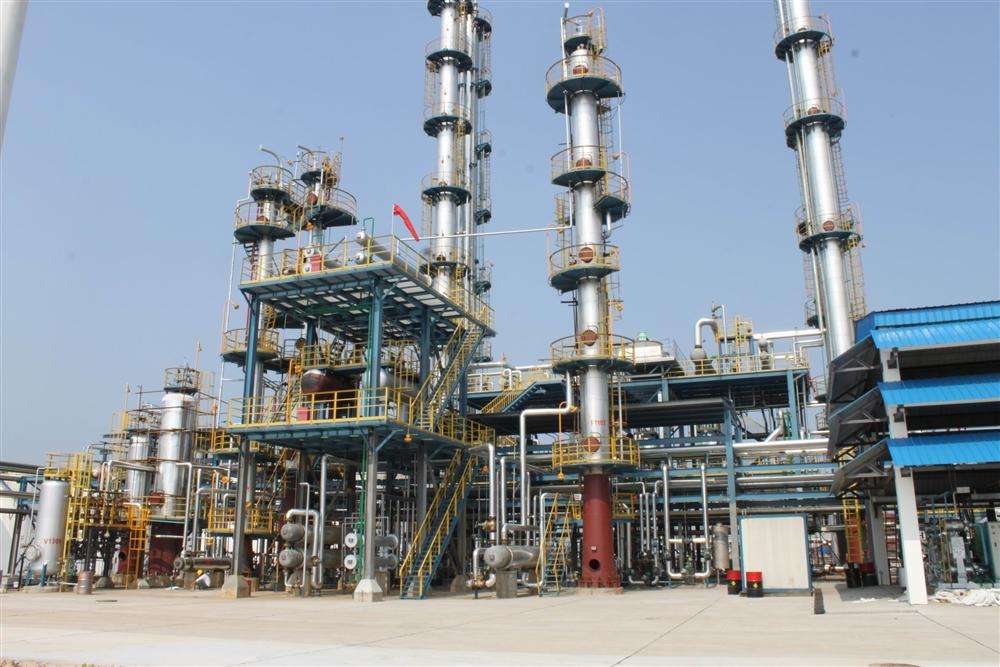Alkyl phenols are vital intermediates and raw materials in the field of fine chemicals. They play an essential role in the creation of non-ionic surfactants, preservatives, mineral flotation agents, resin modifiers, textile auxiliaries, and oil emulsifiers. These compounds are primarily obtained through the alkylation of phenol with olefins, a process that utilizes acidic catalysts to ensure high efficiency and specificity. This article delves into the detailed mechanisms, catalysts, and industrial significance of the alkyl phenol production process.
Understanding Alkyl Phenols
Alkyl phenols are organic compounds featuring an alkyl group bonded to a phenol molecule. This structural modification enhances the chemical and physical properties of phenol, enabling its application in diverse industrial processes. The unique properties of alkyl phenols—such as their surface activity, thermal stability, and compatibility with other chemical agents—make them indispensable in manufacturing and chemical synthesis.
Key Applications of Alkyl Phenols
- Non-Ionic Surfactants: Alkyl phenols are essential in the production of surfactants used in detergents, emulsifiers, and dispersants.
- Preservatives: These compounds extend the shelf life of products by preventing microbial growth.
- Resin Modifiers: They enhance the durability and flexibility of resins in industrial coatings and adhesives.
- Textile Auxiliaries: Alkyl phenols improve dyeing processes and fabric treatments.
- Oil Emulsifiers: They aid in the stabilization of emulsions in petroleum refining and other oil-related applications.
Overview of the Alkyl Phenol Production Process
The alkyl phenol production process involves the reaction of phenol with olefins in the presence of acidic catalysts. The process can be divided into the following stages:
1. Preparation of Reactants: Phenol and olefins are purified to remove impurities that could inhibit the reaction.
2. Catalytic Reaction: The reactants are introduced into a reactor containing the chosen acidic catalyst.
3. Product Separation: The alkyl phenol is separated from by-products and unreacted materials using techniques like distillation or solvent extraction.
4. Purification and Final Processing: The product is purified to meet industrial quality standards.

Role of Catalysts in Alkyl Phenol Production
Catalysts are crucial for enhancing the efficiency and selectivity of the alkylation process. The commonly used catalysts include:
Ion Exchange Resins
Ion exchange resins provide a stable and reusable medium for facilitating the alkylation reaction. They are especially effective in ensuring the selective formation of para-alkylphenols.
Boron Trifluoride (BF₃)
Boron trifluoride is a powerful Lewis acid catalyst that promotes the formation of tertiary carbon ions, which are essential intermediates in the reaction. It ensures a high conversion rate and minimizes side reactions.
Activated Clay
Activated clay is a cost-effective catalyst that offers moderate acidity and is often used in combination with other catalysts to optimize reaction conditions.
Mechanism of the Alkylation Reaction
The alkylation of phenol with olefins proceeds through the following mechanism:
1. Activation of Olefins: The acidic catalyst (e.g., H⁺) interacts with olefins to generate tertiary carbocations.
2. Electrophilic Substitution: The carbocations react with phenol at the ortho or para positions.
3. Isomerization: Under the influence of the acidic catalyst, the ortho-alkyl group can migrate to the para position, producing para-alkylphenol as the primary product.
4. Regeneration of Catalyst: The catalyst is regenerated at the end of the reaction, making it available for subsequent cycles.
Advantages of the Alkyl Phenol Production Process
- High Selectivity: The process predominantly yields para-alkylphenols, which are industrially valuable.
- Scalability: The process can be easily scaled for large-scale industrial production.
- Cost-Effectiveness: The reuse of catalysts and optimization of reaction conditions reduce production costs.
- Environmental Compliance: Modern processes focus on reducing waste and minimizing the use of hazardous materials.
Conclusion
The production of alkyl phenols is a cornerstone of the fine chemicals industry, supporting a wide range of applications in surfactants, preservatives, and beyond. By leveraging advanced catalytic processes and innovative technologies, the alkyl phenol production process continues to evolve, meeting the demands of modern industry while addressing environmental and economic challenges.
















